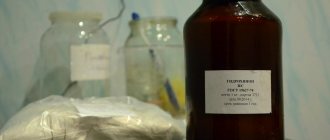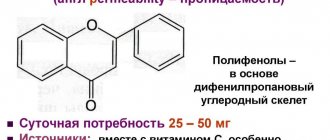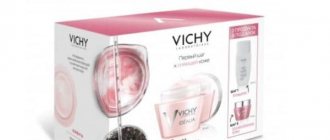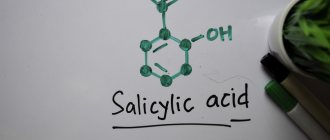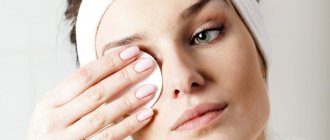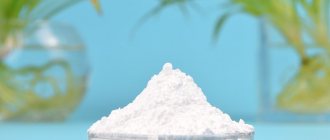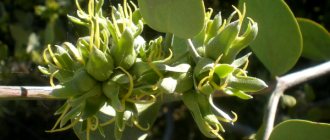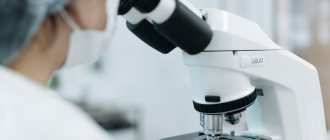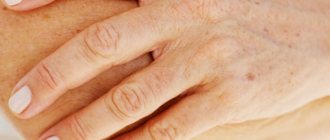- What is arbutin
- Composition of arbutin and forms used in cosmetics
- Beneficial properties of arbutin
- Contraindications
- Top Korean products with arbutin
We continue to introduce readers to the most common cosmetic components of Korean care. Today we will talk about a product that can eliminate hyperpigmentation, excessive melanin production, and not only lighten, but also significantly rejuvenate the skin. Yes, we are talking about arbutin - one of the most active components of cosmetics produced in Korea. Let's figure out the secret of its effectiveness and why arbutin is so widely used in cosmetology.
What is arbutin?
In products whose action is aimed at brightening skin color and evening out tone, arbutin is an indispensable ingredient.
To obtain it, it is necessary to carry out a number of chemical reactions based on interaction with plants:
- bergenia;
- bearberry;
- cowberry;
- mulberry.
Its mild and safe effect is explained by its natural composition: it cannot be considered a carcinogenic or toxic substance.
Its beneficial properties are explained by its natural origin:
- Has a calming effect on the skin.
- Does not cause swelling and does not lead to dry skin.
- With increased skin pigmentation, it helps slow down the process of melanin synthesis.
- The substance acquires astringent properties and becomes an antiseptic after it enters an alkaline environment.
The products that contain it have not only a pronounced whitening effect. Arbutin helps to actively protect the skin from the adverse effects of ultraviolet radiation, and also helps improve immunity at the local level. When used, the degree of pain is significantly reduced and inflammation is eliminated.
What is the name for arbutin in cosmetics?
In cosmetics, arbutin can be designated differently: Arbutin, Alpha-Arbutin, Beta-Arbutin, a-Arbutin or Glucosylatedhydroquinone. And sometimes it is hidden in some plant extracts - blueberries, bearberry, pears, mulberries, bergenia, lingonberries, cranberries, etc. Moreover, most often many manufacturers designate arbutin in cosmetics in this way - this is done to avoid some problems, related to patent law. In addition, all of the above plant extracts can help the skin in solving a number of other problems.
Composition of arbutin
Arbutin (what it is used for and how it is used will be described below) has a second name - hydroquinone beta D. Hydroquinone in its pure form is recognized as a toxic substance, so its addition to various products has become prohibited. Arbutin has become an alternative to this substance in various drugs.
The organic compound comes in the form of an ether, which is obtained by brewing the leaves of plants that contain it. When lead acetate is added, tannins precipitate.
The arbutin crystals themselves are obtained by isolating them from evaporated hydrogen. After treatment with activated carbon and water, arbutin is obtained in crystallized form. The substance arbutin has a chemical composition of C12H16O7 • ½ H2O and is divided into structural isomers alpha- and beta-arbutin.
Where and how much to buy cosmetics with arbutin?
Many people use arbutin in homemade creams, so the question arises where to buy arbutin. But in its pure form it is sold only in online stores; for example, 5 g of extract will cost you 600 rubles.
Ready-made cosmetics with arbutin differ in their pricing policies. Thus, BeautyMed brand cosmetics will cost at least 3 thousand rubles per jar; Holyland cream is easier to buy, as it is sold in many large retail chains, as well as in cosmetology clinics and offices, but its cost is also high - from 3 thousand rubles .
So the use of arbutin for age spots is not a myth, but the pure truth. The component really prevents new spots from forming and reduces the severity of old ones. Compared to other active ingredients in whitening creams, arbutin is not aggressive. To be completely confident in the safety of the cream against pigmentation, you should choose products where the concentration of arbutin does not exceed 4%. These requirements are met by products of several brands costing from a couple of hundred rubles to three thousand or more. Also, do not forget to fully study the composition; do not choose creams with a high content of parabens, EDTA, MIT, TEA.
[yasr_overall_rating size=”medium”]
Alpha and beta arbutin: properties and differences
When D-glucose enters into a bond with a hydroquinone molecule, a two-phase formation of arbutin occurs: with alpha and beta glycosidic bonds. Beta-arbutin is naturally occurring and is extracted from bearberry, while alpha-arbutin is obtained exclusively in the laboratory.
Pure powder product alpha-arbutin has a higher cost and better efficiency, which is often justified by many manufacturers for high prices for cosmetic products. Differences in the way D-glucose binds explain the difference in the influence of alpha and beta groups on melanin synthesis.
Alpha-arbutin is a rather expensive component and can block the process of biosynthesis of epidermal melanin. Based on the results of numerous clinical studies, it was found that beta-arbutin has a milder effect, so the effectiveness of its use is several times lower.
How does it work?
When penetrating into the deep layers of the skin, arbutin acts suppressively on the formation of cells that promote the production of melanin. This action is aimed at preventing the appearance of new age spots and lightening existing ones.
Effect of Arbutin on the skin
Its active action begins immediately after application to the skin, which protects the skin from the active effects of sunlight, which can cause darkening and dryness of the skin. The component is included in some sunscreens because it prevents the appearance of a strong tan. After applying it, the skin will be protected from the harmful excessive effects of ultraviolet radiation.
Arbutin has an antiseptic effect and partially disinfects the skin, eliminating inflammatory processes and reducing the likelihood of rashes.
The safety and effectiveness of its use have been proven: melanin synthesis is reduced by 76% at high concentrations, and by 40% at lower concentrations.
What is arbutin
Alpha arbutin is a substance that has antioxidant and whitening properties, which is why it is often added to various cosmetics. This component belongs to the group of phenolic-type glycosides. In other words, alpha-arbutin is a derivative of hydroquinone, a substance that is often included in anti-pigmentation whitening creams. In addition, this component has an antiseptic effect.
Alpha arbutin is a substance that inhibits melanin synthesis
Arbutin is able to block the production of tyrosinase (a copper-containing enzyme), which is involved in the synthesis of melanin pigment. Thanks to this action, pigment spots are lightened and their reappearance at the site of application is prevented.
Many people believe that arbutin is toxic and can cause cancer. However, there is no scientific evidence for this. Similar substances are found in lingonberry leaves and bearberry, which are often used for pathologies of the urinary system. Alpha arbutin is still under close scientific attention. Its study continues to this day.
How arbutin works - video
Advantages and disadvantages
Arbutin (what it is used for and how it is used was described earlier) has many beneficial properties:
- Partially reduces the production of melanin, due to which the frequency of excessive pigmentation on the skin is reduced several times.
- Gets rid of sun spots, freckles, dark acne marks and other types of pigmentation.
- Improves overall skin condition.
- Helps reduce acne scars.
According to studies, no negative effects of the substance on the skin were identified. However, it is worth remembering that arbutin is conventionally considered one of the varieties of hydroquinone, a substance that has been banned for use in various drugs.
Some studies show that hydroquinone promotes the occurrence of malignant neoplasms. Arbutin does not contain carcinogenic substances, therefore it is not prohibited as a cosmetic additive.
Skin Benefits
Because arbutin breaks down into hydroquinone, it improves the appearance of dark spots. It can be considered as an alternative to hydroquinone.
In addition to its innate inhibitory effects, arbutin acts as a reservoir that slowly releases hydroquinone. Once absorbed into the dermis, enzymes in the body cleave the sugar group from arbutin. This works as a built-in safety valve, preventing your skin from being exposed to too much hydroquinone at once.
Researchers have been studying arbutin's ability to inhibit tyrosinase in skin cells since the 1990s. There is promising scientific evidence to suggest that the ingredient is effective as a lightening agent. It is gentler than other skin whitening ingredients.
Other special properties include:
- Sun protection: exhibits the ability to reduce the degree of darkening of the skin after sun exposure by blocking the production of tyrosinase.
- Gentle on the skin: other lightening agents can dry out and irritate the epidermis, but this substance is less irritating.
- Improves uneven complexion: Inhibits tyrosinase, an enzyme that helps in the production of melanin. Prevents the appearance of dark spots and helps smooth them out.
- Safe for use with other skin care products: There are no known negative interactions between arbutin and other ingredients.
- Great for eliminating red-purple acne scars that remain long after the pimple has gone away.
- Fights freckles, hyperpigmentation, lentigo, melasma and chloasma.
Indications for use in cosmetology
In the field of cosmetic procedures, arbutin performs the function of suppressing the process of melanin synthesis.
Cosmetic problems that can be solved by using special whitening products:
- Strong pigmentation.
- The appearance of age spots.
- Freckles and sun spots.
- Spots caused by irritants.
- Different forms of melasma.
- Pigment spots caused by an inflammatory process (acne marks or wounds).
- The presence of scars and marks that remain from skin rashes.
You should not expect instant results from using drugs that contain a natural component. Lightening begins after some time: approximately 25-45 days after the first use of the product.
This is due to the fact that it is this period of time that the skin needs for its deep renewal, after which it will be possible to note the presence of an effect from the use of a particular drug. In the field of cosmetology, products containing arbutin are considered non-hazardous: they are not capable of causing irritation to the skin and do not cause the development of allergic reactions.
Don't miss the most popular article in the section: Facial massage according to the system of the Japanese doctor Asahi Zogan.
Arbutin and facial skin
Why does arbutin lighten skin? It turns out that it affects the pigment responsible for the intensity of the shade. After application, it reacts with melanin and blocks its synthesis. That is why, being under the sun's rays, a person may not get a tan. No, the skin tans, but the shade becomes less saturated and very visible. It looks natural, gentle. For many, it is important that the likelihood of hyperemia, which is a sign of a 1st degree burn, is reduced.
How to lighten your facial skin? 20 funds
Important information: arbutin does not affect cell structures other than melanin.
This property of the substance helped it become part of products that are used to protect the skin from sun exposure. In addition, arbutin is used for:
- elimination and prevention of pigment spots. It is added to whitening cosmetic preparations;
- elimination of age spots, freckles;
- removing stains that have arisen due to prolonged insolation;
- reducing the inflammatory process that occurs at the site of small wounds, acne, etc.
Changing skin tone does not happen overnight. The result becomes noticeable after about 30 days from the start of regular use of a cosmetic product containing arbutin. Why so long? This is exactly how long it takes for the top layer of skin, the epidermis, to completely renew itself.
Photo by Sora Shimazaki from Pexels
The lack of a quick effect should be regarded as a positive property. The substance acts carefully, gently, and does not make the skin overly sensitive. This is its main difference from various acids that are added as a base to lightening masks, creams, and serums.
Another good property of the substance is its mild anti-inflammatory effect. In addition, it does not dry out the skin and at the same time acts as a natural antiseptic, suppressing the proliferation of microorganisms and preventing the occurrence of acne.
Contraindications
Opinions about the safety of using the substance differ and to date no single solution has been found. A contraindication to the use of skin whitening preparations with the active ingredient arbutin is individual intolerance and high sensitivity, since the likelihood of side effects will depend on the characteristics of the body.
It is recommended to use cosmetics with caution for people with dark skin, as this can cause the opposite effect - pigment spots can acquire a bluish-black color.
Whitening vs. lightening
Skin whitening Bleaching, also known as bleaching, refers to the cosmetic abuse of toxic substances (such as mercury compounds) or skin lightening agents (such as topical corticosteroids) to alter the normal and natural color of the skin. Skin bleaching is a non-surgical cosmetic practice used to change the texture and color of the skin, not for medical reasons, but to improve appearance. Skin lightening for the treatment of pigmentation disorders is usually called lightening in the English literature and involves changing the chemical structure of the skin by suppressing the synthesis of melanin through taking pills, injections or applying cosmetics to a certain area of the body surface for a certain time.
People who practice skin whitening report positive results: increased attractiveness, confidence and self-esteem, and elimination of physical defects. However, long-term skin bleaching and the use of toxic and potent agents are associated with a variety of serious consequences, ranging from dyschromia to more worrisome systemic side effects, including diabetes and hypertension. As a result, the practice of skin bleaching is a public health concern, and the import and sale of skin bleaching products is banned or strictly regulated in many African, Asian, European and North American countries.
Chemical analysis of skin whitening products raises doubts about their safety as they contain dangerous ingredients such as mercury and hydroquinone in quantities exceeding established standards. Researchers have linked these toxic substances to adverse health effects.
Natural Sources of Arbutin
The plant origin of arbutin allows it to be considered a natural ingredient.
The substance is contained in the leaves of such plants:
- bearberry;
- Caucasian blueberries;
- wintergreen;
- cowberry;
- mulberry;
- bergenia.
The younger the plant, the greater the amount of arbutin it will contain. To obtain the substance, plant leaves should be boiled in water, and then tannins should be precipitated from the resulting mixture.
After evaporation, the substance is formed in crystalline form, in which silky needles are formed . After processing it using activated carbon, a component is obtained, which will then be added to skin whitening products.
What are the contraindications for arbutin?
Some researchers believe that arbutin may contribute to cancer. However, other tests demonstrate that up to 75% of arbutin leaves the body during urination, and the remainder is insufficient to be carcinogenic.
It is believed that the substance in small doses heals the genitourinary system and protects it from infections.
To eliminate the possibility of dangerous consequences from the use of products containing arbutin, responsible cosmetic companies usually limit its concentration to 4% of the total volume of the product. In such quantities, arbutin is considered absolutely safe.
Cosmetic products with arbutin
For cosmetic purposes, products containing arbutin are used to solve aesthetic skin problems associated with the increased formation of age spots. The amount of substance contained in the drug will directly affect the effectiveness and safety of its use.
Excessive arbutin content can lead to adverse effects such as the formation of black spots on the skin. When choosing products, you should pay attention to the composition and the presence of additional useful components in it.
Arbutin (why this substance is used in cosmetics will be explained by dermatologists or a specialist at a beauty salon) is part of a large number of products on the cosmetics market:
- lotions;
- cream;
- serums;
- soap.
Each option should be selected based on individual preferences, as well as the general properties of the product. Most of the products are developed by Asian companies, where such products are quite common.
The substance can be combined with hyaluronic acid, natural plant extracts and enzymes, vitamin C, and also act as an additional ingredient in the manufacture of hair coloring products.
Which products with arbutin to choose - top 5 best
Today on the cosmetic market there is a sufficient choice of care with arbutin. To help make shopping easier, we've rounded up the top 5 effective anti-pigmentation products containing this compound.
Whitening Cream from Holy Land
The cream from the Israeli brand has earned recognition from both consumers and cosmetologists. It is often included in home care for pigmentation prescribed to women by professionals. The product contains a lot of natural extracts (grapes, Baikal skullcap, mulberry, etc.) and activates cellular metabolism. As a result, unpleasant spots disappear faster, and the face begins to look fresher and more youthful.
Cost - from 2500 to 3000 rubles
Idealia Pro Serum from Vichy
Gives an almost instantaneous skin lightening effect due to the combination of arbutin with other whitening components (titanium dioxide, capryloyl salicylic and citric acids, etc.). The vitamin C content makes the skin glowing and energized. But it does not cope with all types of pigmentation and can cause dry skin, so be sure to use it in conjunction with a moisturizer!
Cost - about 1800 rubles
Line with Arbutin Dermo Active Complex from BeautyMed
The series produces a serum, a cream mask and a dermoactive cream with a whitening effect. These are strong products, the concentration of arbutin in them reaches 5%, which allows you to fight even severe pigmentation. There is also hyaluronic acid, which perfectly moisturizes the skin.
Cost - about 300 rubles
Melascreen Anti-taches brunes SPF15 light cream from Ducray
It combines the properties of a day cream and a sunscreen, but the SPF is not so high, so it is better to use it in the winter, and for the summer, choose a cream with an SPF factor of 25 or more. It is best suited for those with oily or combination skin. Makes an excellent base for makeup. There are quite a lot of positive reviews about this cream; the product actually whitens the face well.
Cost - about 1500 rubles
Olive oil Brightening cream from Aphrodite
The product is created for dry and dull skin, enriched with olive and jojoba oils, contains hyaluronic acid, aloe and rosemary extracts. Normal skin will also like the cream, it does not create an oily sheen, and does not leave white spots like other sunscreens.
Cost - about 700 rubles
Names and descriptions of creams
Among the wide variety of products on the cosmetic market, creams are often chosen due to their availability and ease of use.
The most famous and effective include:
- Roland Cream.
The product is intended for use on the skin of the face and is stated by the manufacturer as a product that will be suitable for any skin type. Arbutin and placenta extract are the active substances of this product, and it is produced by a Japanese manufacturer. The product actively fights darkening on the face, has a pleasant consistency and nourishes well. There is no greasy shine or sticky feeling left on the skin. The vitamins included in the cream gently nourish the skin and provide high-quality care for its condition. - Whitening cream from Himalaya Herbals. The product has a pronounced effect in the form of noticeable lightening of the skin, and thanks to the presence of natural components of plant origin in the composition, the skin color is completely evened out. The product has a fairly light consistency and is well absorbed.
- MelaClear cream for skin whitening. The anti-pigmentation remedy is an innovative development. The content of nano-liposomes in it allows active substances to penetrate into the deeper layers of the skin. Due to the content of a large number of beneficial plant extracts, the product is used for deep hydration. The composition enriched with vitamins allows you to activate cellular processes, improves nutrition and metabolism in cells.
When choosing creams, you should carefully study the composition before use. This will minimize the risk of allergic reactions.
Don't miss the most popular article in the section: Face fitness for facelift, rejuvenation, muscle tone. Master class from Elena Karkukli
What's happened
Arbutin is a natural skin lightening and whitening agent. Naturally occurring hydroquinone derivative. It is considered to be one of the best alternatives to hydroquinone as it provides brightening benefits without the risks. When this product is applied to a surface, it is converted to hydroquinone through a process called hydrolysis. This is hydroquinone, which prevents the production of tyrosinase, which reduces the production of melanin (pigmentation) in the dermis. Due to its conversion to hydroquinone, the effects of arbutin are milder due to its slow release. In turn, it takes a long time for it to show visible improvements in pigmentation reduction.
Basically, brown spots are caused by pigments that are produced in cells called melanocytes, which contain enzymes called tyrosinase.
Dark spots can be activated upon contact with ultraviolet light. Freckles and sun darkening occur when there is too much sun. Arbutin comes to the rescue by blocking tyrosinase.
Serums for age spots: product review
Serum differs from cream in a higher concentration of active ingredients. The intense effect on the skin occurs because in most cases the serum is intended to solve a specific problem.
The most popular products on the cosmetics market include:
- Anti-Melasma Serum . The drug is intended for use on skin with severe problems such as rashes, inflammation and partial darkening. The presence of arbutin in the composition helps to obtain a uniform tone with regular use of the product. The drug has a very light texture and is absorbed as quickly as possible.
- The Ordinary Alpha Arbutin 2% serum from the Canadian brand Deciem. The composition includes hyaluronic acid, which in combination with arbutin has a good effect and improves skin condition. The consistency is viscous, easy to apply with a pipette and quickly absorbed, leaving a soft film on the face. The product has a whitening effect, completely evening out the complexion.
Serums are produced in smaller volumes, but due to their different consistency from creams, they are used quite economically.
Types in cosmetics
In cosmetics, this ingredient is present in different forms:
- Alpha arbutin is a purified and more effective form compared to beta arbutin. Perfectly whitens any skin, but expensive to produce. Only high-quality preparations contain this component. Has a stronger inhibitory effect.
- Beta-arbutin (unstable version) - often called without the "beta" prefix. Available in inexpensive means. If the alpha component is not written in the composition, then you can safely assume that the composition contains a beta version. Most care products contain plant extracts that contain arbutin, and not pure alpha. Popular in cosmetic preparations intended to lighten the epidermis, such as lotions, creams, night masks, serums, cleansers, for the treatment of dark areas, lightening.
- Deoxyarbutin is a synthetic form. Powerful antioxidant. It is 150 times more effective than kojic acid and 10 times more effective than hydroquinone. Harmless, stable, less cytotoxic, practically does not irritate the dermis and is well absorbed. The concentration recommended by experts in cosmetics is 0.1 – 3%. Despite all the advantages, it is practically not for sale.
Whitening soap
Arbutin (why this component is included in cosmetic products can be read on the packaging of some products) is often used in the manufacture of soap, which can also be used to get rid of:
- age spots;
- freckles;
- traces of rashes.
The most effective products include the following products:
- Medical facial soap Dr Yanhee Soap made in Thailand. In addition to arbutin, the composition includes additional active components: collagen, vitamin C and natural papaya enzyme. Has a whitening effect, eliminates pigmentation, acne and evens out facial tone.
- Natural soap Madame Heng cleanses the skin well and gently whitens it. Thanks to the presence of vitamins, amino acids and plant extracts, the soap relieves inflammation, helps to narrow pores, and evens out the tone and structure of the skin.
- Lab Dee alpha arbutin soap. The product is produced in Thailand and is intended to even out the complexion and get rid of dark spots. The natural ingredients that make up the soap have a gentle effect: the skin is not overdried, deeply cleansed, and has an even tone without pigmentation.
More often, soap is suggested to be used in conjunction with other skin lightening products: the skin is first cleansed using a special soap with the addition of arbutin, and then a cream, serum or lotion is applied.
History of appearance
In the past, the main skin lightening ingredient recommended by many dermatologists was hydroquinone. Controversy over its safety (it should not be used on darker areas; causes ochronosis; the FDA has declared it carcinogenic; it is currently banned in Europe, Australia and Japan) has sent specialists searching for alternative ingredients. We've got arbutin, the new brightening wunderkind in the dermatological world.
Like licorice root, mulberry, soybean extracts, kojic acid, azelaic acid, vitamin C and niacinamide, arbutin is an herbal ingredient for fading darkened areas. It is possible to obtain it synthetically or from bearberry and other plants. Shows antioxidant activity.
Usually combined with other skin brighteners such as kojic acid, vitamin C, niacinamide. They all work on a common principle leading to lightening. They have a greater effect when combined with each other.
Facial lotions
Among the wide variety of cosmetic products, special lotions with arbutin can treat age spots.
The most famous and effective of them are:
- Cosmetex Roland. In addition to evening out skin color, it actively nourishes it and saturates it with useful components. The composition contains vitamin C and placenta, thanks to which the skin becomes velvety to the touch and noticeably moisturized. The pleasant consistency allows the lotion to be quickly absorbed without leaving a sticky layer. The product is hypoallergenic.
- Hana lotion made in Japan. To combat darkening on the face, Japanese manufacturers have developed a special product, which also contains hyaluronic acid. This component makes the skin noticeably softer in feel, moisturizes and prevents its aging.
- HADA LABO. The lotion is suitable for use on various skin types and is available in two variations. When using the product, you can evaluate its complex effect: the components actively eliminate darkening of the skin, hyaluronic acid slows down the aging process, vitamin C allows the walls of blood vessels to strengthen. There are no artificial colors, alcohol, fragrances or mineral oils in the product.
To achieve a visible effect, you should use the products regularly. The products are suitable for use as a stand-alone product, and can also be used in combination with other drugs.
How is arbutin used in gynecology for women?
Arbutin (why and how it is used in medicine will be described below) has various beneficial properties that can be important not only in the field of cosmetology. It is for this reason that the substance is used in the creation of drugs. Arbutin is one of the constituent components of hogweed, a perennial herb often called female.
In the field of gynecology, the benefits of using the substance are explained by its numerous properties.
The table provides a brief summary of diseases for which products with arbutin will be especially useful:
| Basic properties | Diseases |
| Diuretic |
|
| Anti-inflammatory | |
| Antibacterial |
Borovaya uterus, which contains arbutin, helps normalize hormonal levels and restore the menstrual cycle.
What are they made from?
Arbutin occurs naturally in several different plants. Bearberry and mulberry have the highest concentrations. Good content in blueberry, cranberry, wheat and pear varieties.
Bearberry has been used for centuries in Europe and North America in traditional medicine. Before the discovery of modern antibiotics, it was considered one of the few known natural antimicrobial drugs. The antibacterial activity is due in part to the presence of arbutin. Traditionally used to treat urinary tract infections. Synthetic forms can be created through chemical synthesis or an enzyme-catalyzed process.
Side effects
The occurrence of various side effects will depend on the individual characteristics of the skin:
- Skin irritation in the area of application – most often occurs when used by a person who is at high risk of developing allergic reactions.
- The appearance of blue-black spots in the hyperpigmentation area. This phenomenon can occur when using highly concentrated products, as well as in people with dark skin color.
If a rash or redness occurs after using the product, rinse the affected area with plenty of water. You should select whitening products in which the arbutin content will not exceed the recommended dosage (2-4% of the total number of components).
How quickly results are visible when used
Depending on the depth of pigmentation, visible lightening effects can be seen after just 4 weeks. If you need quick results, then purchase drugs based on alpha-arbutin instead of other alternatives.
An important nuance - the result of lightening with arbutin is not permanent.
If you stop using it, the skin may return to its original state.
Because of this, it is advisable to combine different lightening ingredients for sustainable success.
How often can I use arbutin products?
The main properties of arbutin-based products are: protection against ultraviolet radiation, skin whitening, elimination of inflammation and reduction of painful sensations on the skin after rashes.
Manufacturers recommend using the drugs twice a day, morning and evening. The entire course will last from 25 to 45 days, after which it is recommended to take a break. During this time, the top layer of skin will have time to renew itself, which will allow you to evaluate the effectiveness of the product used.
Arbutin is an effective substitute for hydroquinone and does not contain toxic substances. Numerous studies have proven that preparations with arbutin are harmless if the dosage is observed.
According to reviews, many people familiar with the problem of skin hyperpigmentation were able to evaluate the high-quality effect of arbutin-based products. Before using any drug, you should study the composition, as well as information about what it is intended for and how to use it.
Article design: Mila Friedan
